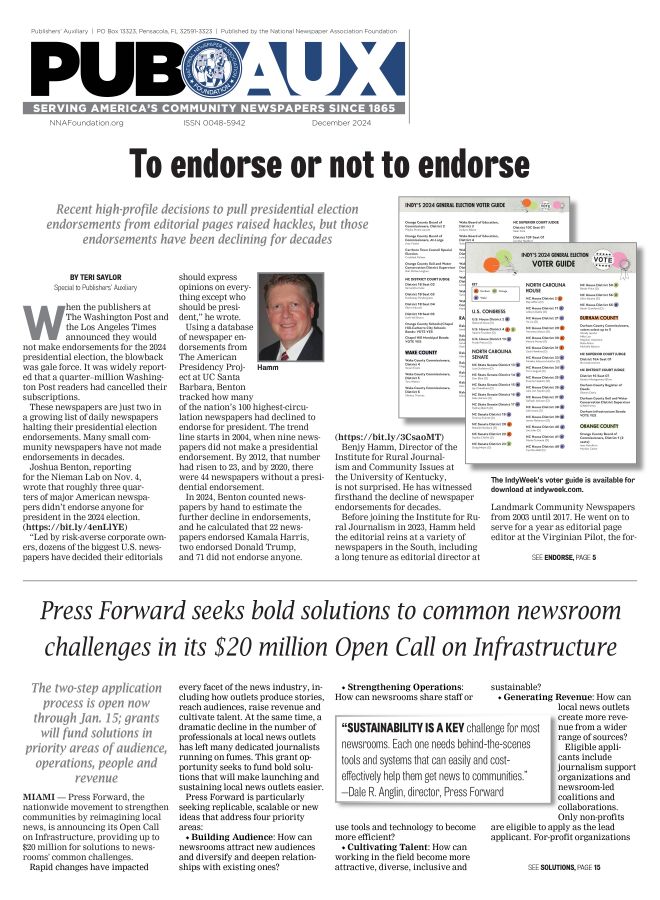Trump, Fox, Kelly and the history, hype and hope of debates
Jan 28, 2016
By Gene Policinski
Inside the First Amendment
What's going on with presidential primary debates?
And I don't mean the latest issue many will think of first: The flap between Fox News and GOP front-runner Donald Trump over Fox News anchor Megyn Kelly.
Granted, the discussion over which journalists will or will not get to ask questions in televised debates generally plays out behind closed doors — in talks between campaign officials and debate sponsors — not in the Twittersphere and in the nightly news.
Rather, the observation that should catch the attention of First Amendment advocates is Trump's view of the purpose behind this last Republican debate before the Iowa primary, apparently shared by many, that the point of the exercise is television ratings and network profits.
"Why should the networks continue to get rich on the debates?" Trump told reporters at a news conference in Iowa. "Why do I have to make Fox rich?" And after pulling out of the debate, he wrote on Twitter about Fox: "Let's see how they do with the ratings. Let's see how many people watch."
What about informing the public? What about letting voters see candidates testing their positions — and yes, their demeanor — through a set of informed questions that speak to the great issues of the day? And where's the obligation of candidates to "stand for election," not just stand behind a podium as entertainment?
In 1928, the League of Women Voters sponsored weekly, 30-minute nationally broadcast presidential debates on NBC radio — but without the actual candidates, Herbert Hoover and Al Smith. Speakers in the 10-month series ranged from college students to newspaper columnists to political cronies.
The first televised debates involving a presidential election were in 1960, a series of broadcasts between Vice President Richard Nixon, the Republican nominee, and Sen. John F. Kennedy, the Democratic candidate.
In the book "Inside the Presidential Debates: Their Improbable Past and Promising Future," authors Newton Minow and Craig L. LaMay noted that negotiations between the government and broadcasters to hold the debates included a waiver of the federal "equal time" provision that would have meant allowing a host of other candidates on stage.
After promises by the networks to Congress to provide at least eight hours of free airtime to each major candidate, Minnow and LaMay wrote, "the 1960 debates ran without interruption even for local station breaks." Broadcasting magazine "estimated that the four debates that year cost each of the networks ... about $6 million overall — and their affiliates many millions more," they said.
Both before and after Nixon and Kennedy squared off, there were differences over the value of the debates and about the journalists facing the candidates.The New York Times complained that the questioners all were broadcasters and not from the usual set of newspaper reporters and columnists who trailed and talked with candidates.
And while author Theodore White, in his famed book "The Making of the President 1960" called the TV exchanges a positive "revolution born of the ceaseless American ingenuity in technology," The Times later called the debates "a powder puff performance" that, while entertaining to some, failed to bring any new insight to voters.
Journalists have at times also courted debate controversy. In 1988, CNN's Bernard Shaw asked Democratic candidate Michael Dukakis, "If Kitty Dukakis (the candidate's wife, who was in the audience) were raped and murdered, would you favor an irrevocable death penalty for the killer?" The audience gasped, other journalists gaped, and the candidate replied coolly that he would not change his longtime opposition to capital punishment. Many saw that exchange as ending the Democrat's presidential chances.
Back to Trump's dispute with Fox over Kelly, and his threat to damage ratings by not participating. Certainly in this presidential cycle, there's undeniable value in "the show." A Fox News telecast of a GOP primary debate in August had 24 million viewers, its highest ever, and among the most-viewed events in cable TV history —beating, I’d note, a former chart-topper, "Night of the Walking Dead.") CNBC, a perennial bottom-dweller in TV audience, drew its record audience of 14 million viewers by airing a Republican primary debate in late October; and Fox Business Network did the same a month later.
But the point of free-and-open exchanges between candidates — and, indeed, the reason the First Amendment provides it highest protection for political speech — is not about entertainment or economics. Televised debates, and the questions that panelists pose, should serve as electronic surrogates for each of us.
The point should not be "gotcha" or "got viewers," but that viewers and voters got better acquainted with the candidates and their views, via the unique collective experience of a few hours on either side of the screen. We speak freely so that we can debate, discuss, disagree and then find common ground for the common good.
Maybe not the makings of a ratings smash, a moment to make a media career, or even a good political tactic. But good for us.
Gene Policinski is chief operating officer of the Newseum Institute and senior vice president of the Institute’s First Amendment Center. He can be reached at gpolicinski@newseum.org. Follow him on Twitter: @genefac.







